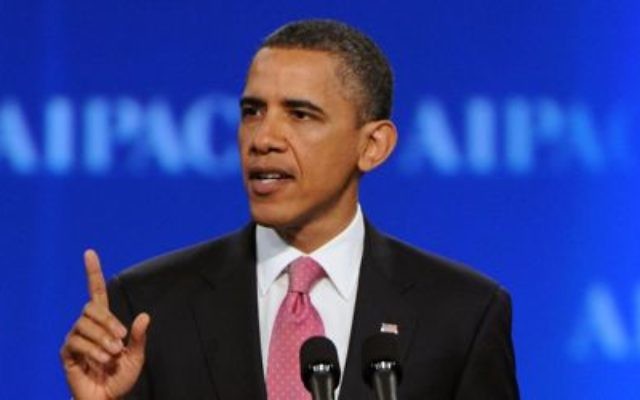Bouquets and brickbats for Obama
AUSTRALIAN Zionist leaders have expressed concern over US President Barack Obama’s declaration last week that a future border between Israel and a Palestinian state should be based on 1967 lines.
AUSTRALIAN Zionist leaders have expressed concern over US President Barack Obama’s declaration last week that a future border between Israel and a Palestinian state should be based on 1967 lines.
In a wide-ranging speech on Middle East policy last week, Obama stated: “We believe the borders of Israel and Palestine should be based on the 1967 lines with mutually agreed swaps.”
The President clarified his comments a few days later in an address to the American Israel Public Affairs Committee (AIPAC), saying: “Let me reaffirm what ‘1967 lines with mutually agreed swaps’ means. By definition, it means that the parties themselves – Israelis and Palestinians – will negotiate a border that is different than the one that existed on June 4, 1967.”
Zionist Federation of Australia president Philip Chester said while there were some positive aspects to Obama’s initial speech, including his pledge to veto Palestinian statehood at the United Nations in September, “it was a very, very big statement so to speak, to make the jump” of declaring what final borders should look like.
“There was no advance warning to the Israelis about this at all,” Chester said.
He said Obama did not take into account assurances given by previous US presidents about such borders not being the basis for a negotiated settlement. But he said the most critical aspect was Obama’s words had “removed a lot of the driver for the Palestinians to come to the table to negotiate”.
“My great fear is it will actually not progress things that much at all, and that could have a counter-effect, which in the Middle East can be very, very dangerous,” he said.
Tzvi Fleischer, from the Australia/Israel & Jewish Affairs Council, said the timing was unfortunate.
“When we’re talking about a final peace deal, we’re probably talking about something roughly based on the pre-1967 lines with land swaps, but putting it the way he did as American policy at the moment when the Palestinians are refusing to talk, when Hamas are becoming part of the Palestinian Authority, when the Palestinians are behaving unilaterally in violation of Oslo, was a mistake,” Fleischer said.
“There were a lot of good elements to [the speech]. He was trying to be balanced but I think he made a couple of mistakes.”
Executive Council of Australian Jewry executive director Peter Wertheim welcomed Obama’s AIPAC clarification.
“We welcome his acknowledgement that the final border in the West Bank will have be to be negotiated between Israel and a future Palestinian state rather than imposed,” he said.
He said it was significant that Obama had called upon all Palestinians, including Hamas, to recognise Israel as a Jewish state.
“Most welcome was the President’s assurance that the United States will stand against efforts to single Israel out at the United Nations or in any international forum, that Israel’s existence is not a matter for debate and that America’s commitment to the security of Israel is iron clad and unwavering,” he said.
GARETH NARUNSKY


comments